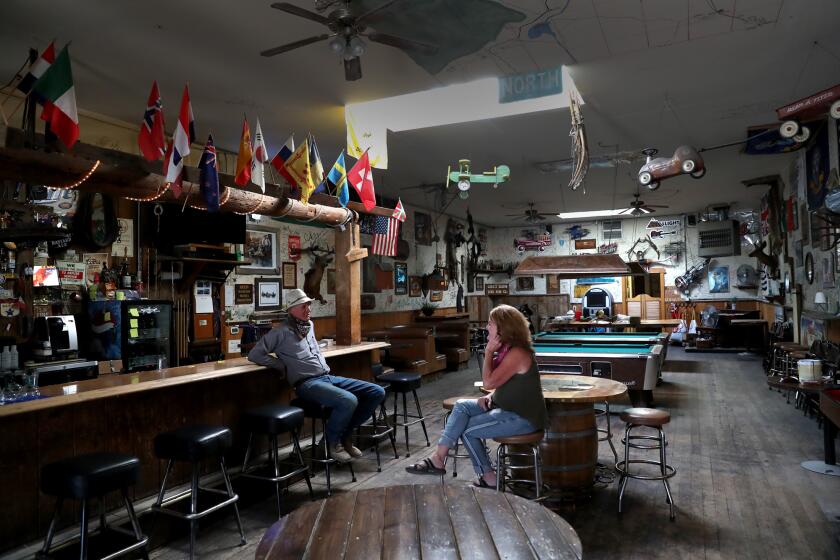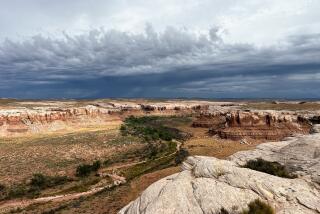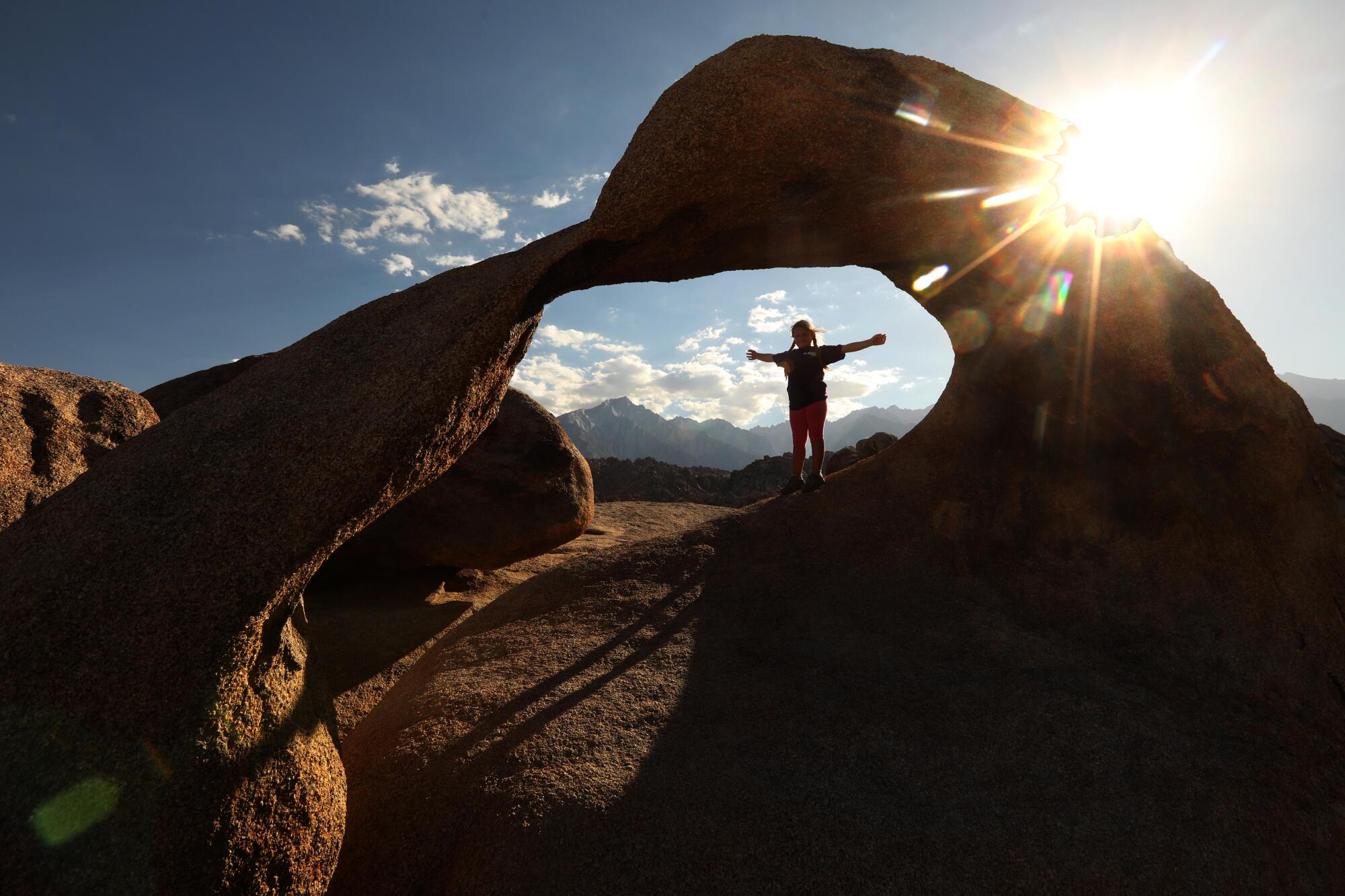
LONE PINE, Calif. — The push to change racially offensive place names has reached the birthplace of western movies: the high-desert badlands of gullies, canyons and outcroppings at the foot of Mt. Whitney known as the Alabama Hills National Scenic Area.
The 18,600 acres of rough and rocky hills on the east side of the Sierra Nevada, along Highway 395 and about 140 miles north of Los Angeles, have appeared in more than 700 movie and television productions since the silent 1920 western “The Round Up,” starring Roscoe “Fatty” Arbuckle.
It was named by Southern sympathizers in the Owens Valley after the Confederate warship Alabama had sunk the Union man-of-war Hatteras off the coast of Texas on Jan. 11, 1863.
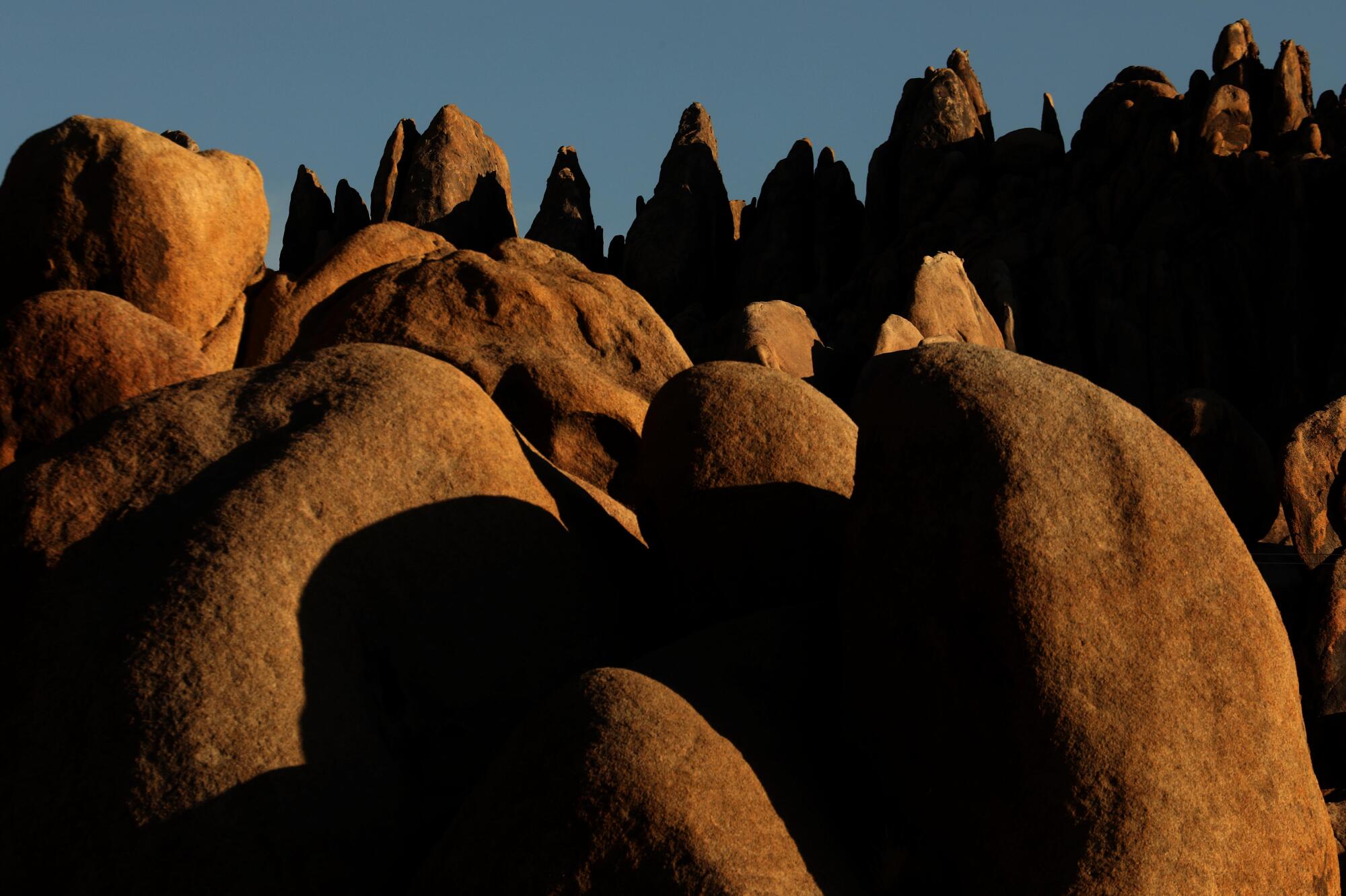
That fact didn’t generate much interest or concern a year ago when the scenic area was formally established under a sweeping conservation bill co-sponsored by elected officials including California’s Democratic U.S. Sens. Dianne Feinstein and Kamala Harris and Rep. Paul Cook (R-Yucca Valley).
Now, with protests for racial justice sparked by the police killing of George Floyd spreading to white Eastern Sierra communities once more known for skiing, rock climbing and trout fishing, the name “Alabama Hills” has come to be regarded as contaminated by racist beliefs.
On Monday, Wendy Schneider, executive director of the nonprofit environmental group Friends of the Inyo, stood on a heap of boulders that portrayed part of northern India for the classic 1939 movie “Gunga Din” and said, “Everyone should feel welcome here because this amazing land belongs to everyone.”
“We’re going to formally begin the process of renaming this place at our next meeting,” added Schneider, an attorney who has participated in lobbying efforts on behalf of Al Gore and for gun control. “It may ultimately require an act of Congress, but I don’t think it will take long to get that. There will be a lot of support for this.”
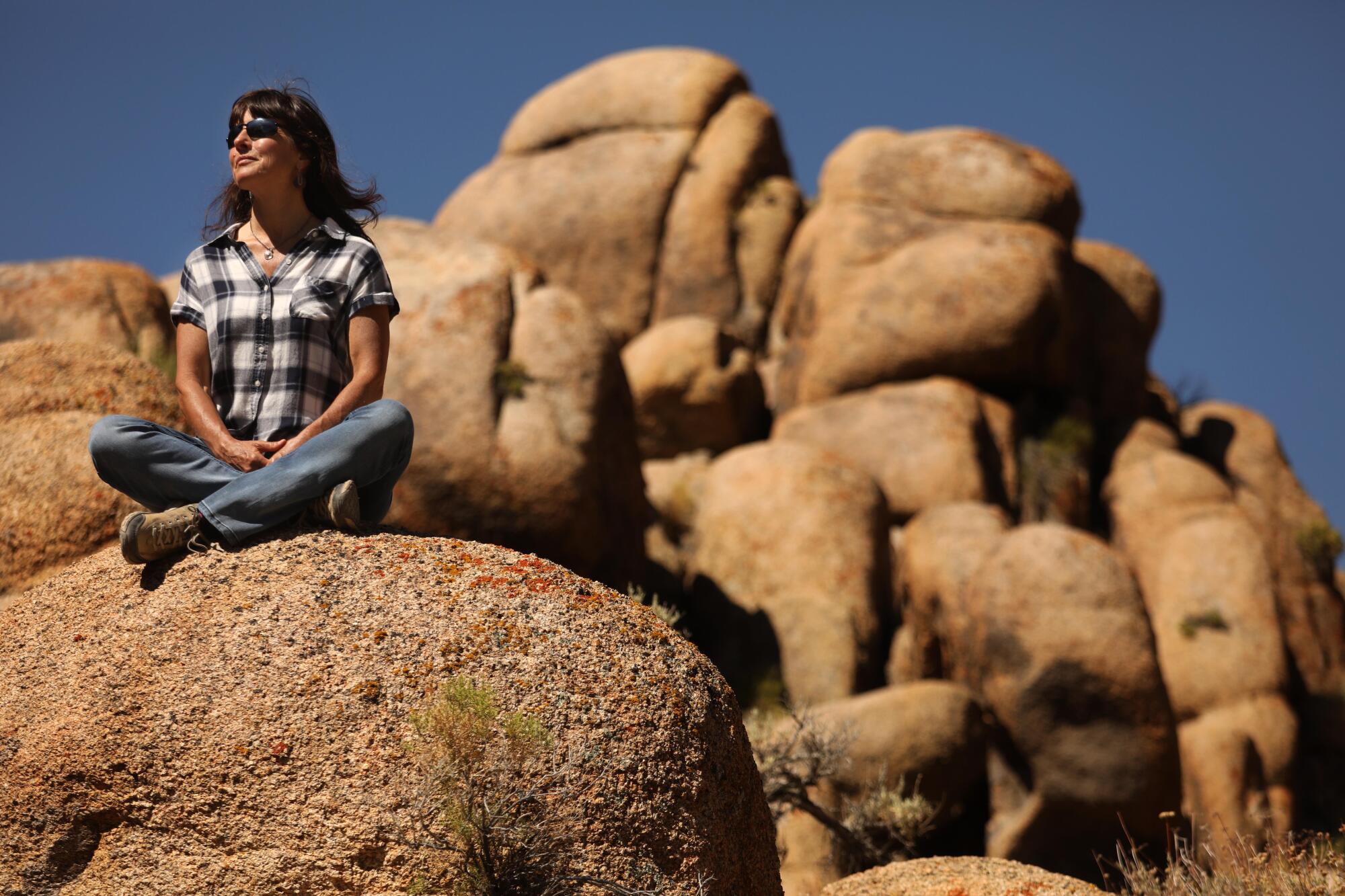
Protesters across the nation have been toppling statues and demanding new names for buildings, memorials, military bases and geographic locations honoring Confederate warships, generals and political leaders as a way of declaring commitment to the values that define our society today.
The Western U.S., including California, is peppered with old, racially insensitive place names, many of them holdovers from the Gold Rush. Close to Sacramento, a group has petitioned to alter the name of Folsom Lake State Recreation Area’s Negro Bar area, triggering debate over whether the title is “old-fashioned” or related to the location’s historical past.
The name of a mountain peak in Nevada’s Great Basin National Park that honored Confederate President Jefferson Davis was restored in 2019 to its Shoshone name, Doso Doyabi. And in California’s Alpine County, changing the name of a another Jeff Davis Peak is under discussion.
A year ago, Inyo County officials agreed to rename an Alabama Hills campground memorializing Jose C. Pires, a Lone Pine town character with a reputation as a local Robin Hood who would steal turkeys from ranches to give to needy families at the holidays. The campground formerly named “Portagee Joe,” a slur adopted from a Portuguese character in John Steinbeck’s 1935 novel “Tortilla Flat,” was renamed “Portuguese Joe.”
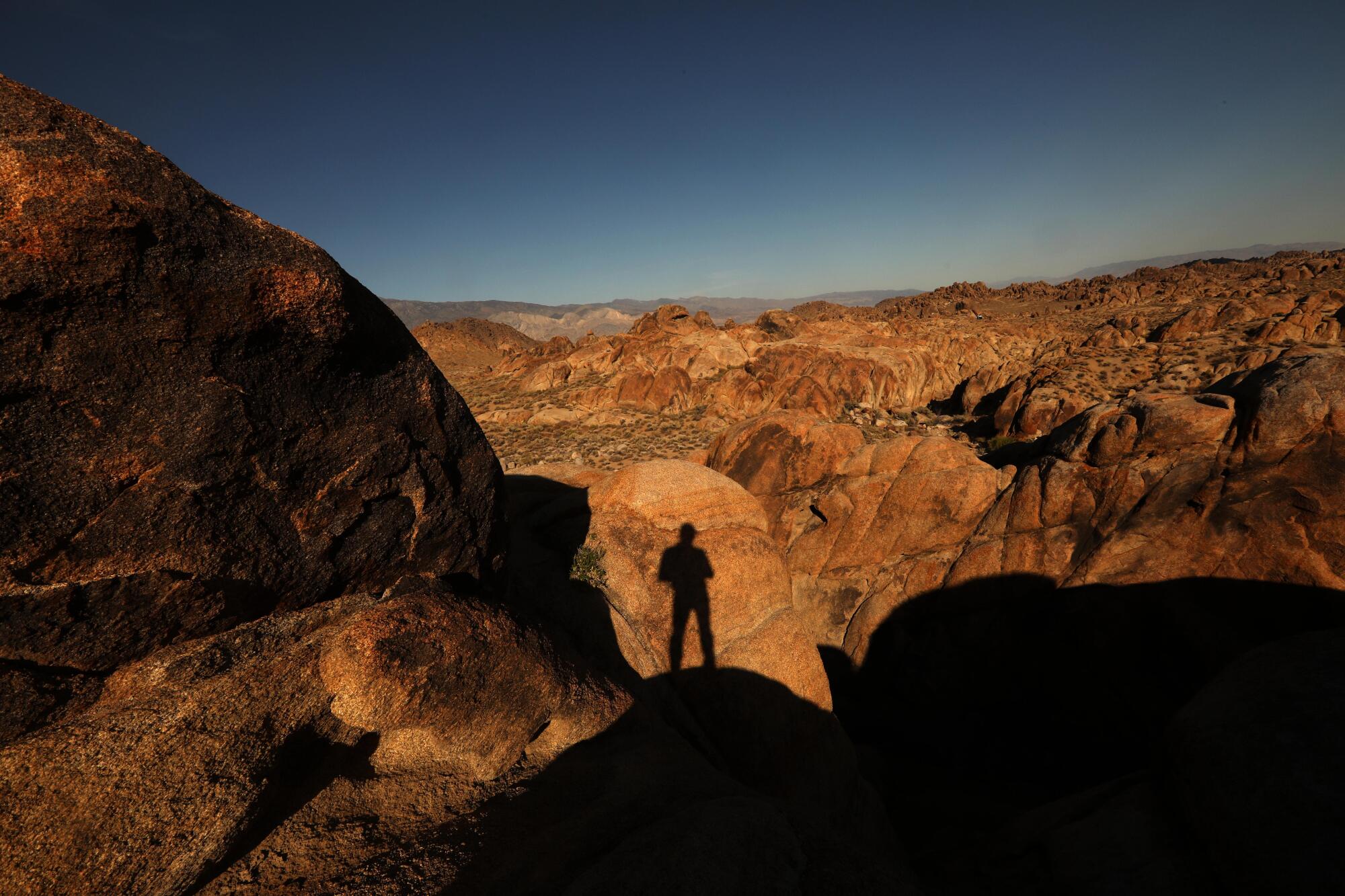
This month, NASCAR banned Confederate flags from its races and events.
“I plan to speak with Congressman Cook and Sen. Harris, the co-sponsors of the desert bill, about our options,” Feinstein told The Times.
Cook was not available for comment. But Serena Baker, a spokeswoman for the U.S. Bureau of Land Management, which manages the Alabama Hills, said, “The BLM supports diversity and inclusion and is looking into this.”
As the coronavirus lockdown severs commerce along the eastern Sierra Nevada range, rural towns look to the future with dread.
In an interview, Anthony Kronman, former dean of Yale Law School, said the controversy is part of “a national reckoning with the question of names that remain like thorns in our sides.”
“What is remarkable about all this,” he said, “is that what was until recently a smoldering, sporadic question has swept the nation like a prairie fire. It has become a prism through which so many issues of race and reconciliation are now focused and bear so much weight.
“I do think all of this has been accelerated by the deep divisions within the nation,” he added, “that President Donald Trump has managed to produce within four years.”
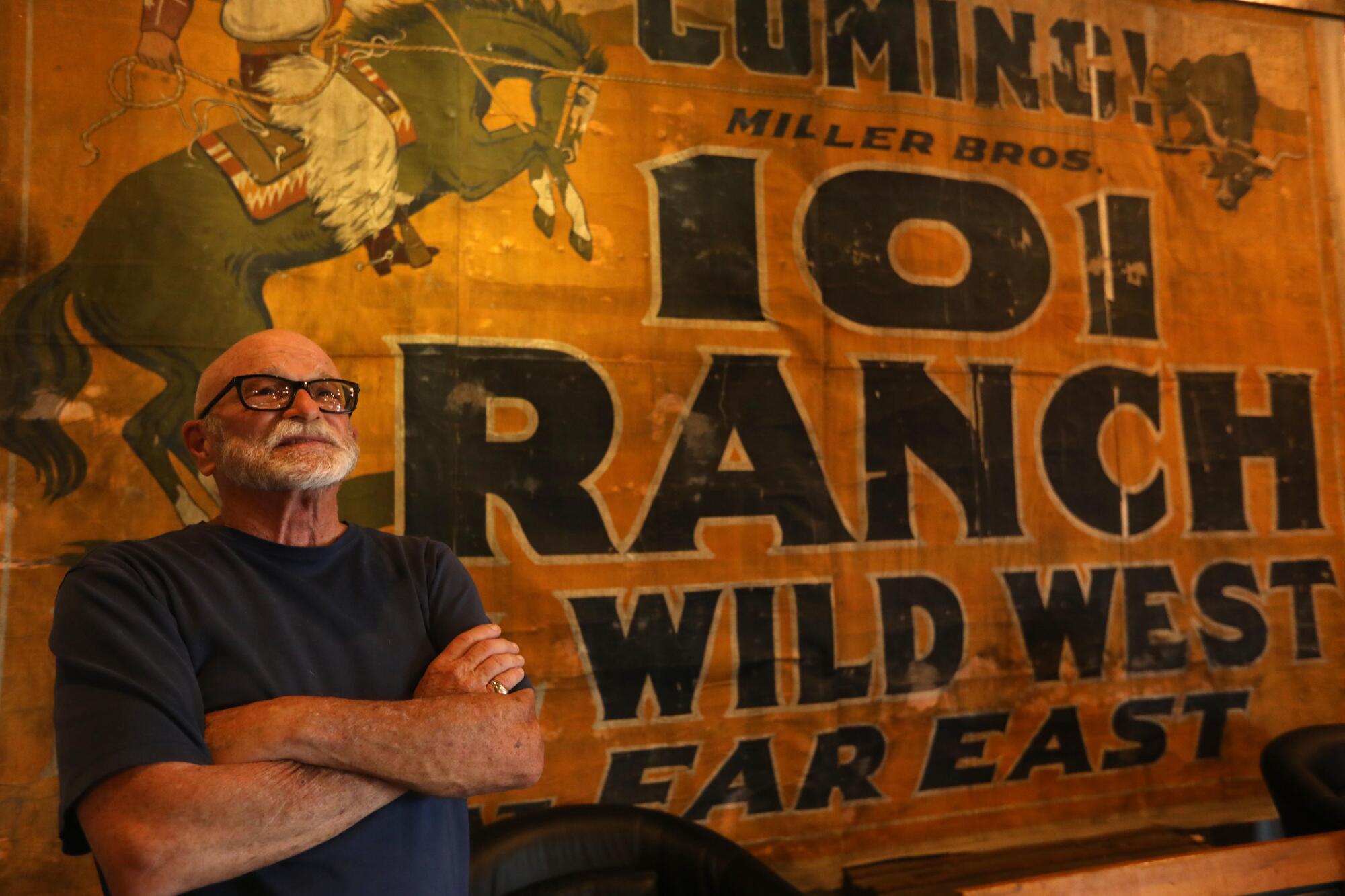
At a political rally in Tulsa, Okla., on Saturday, Trump described activists who topple statues and rename memorials as an “unhinged left-wing mob” that is “trying to vandalize our history, desecrate our monuments, our beautiful monuments.”
“They want to demolish our heritage,” he said, “so they can impose their new repressive regime in its place.”
Opponents of the effort to rename the Alabama Hills include Kevin Mazzu, spokesman for the nonprofit Alabama Hills Stewardship Group, which helped lead a decade-long campaign to have the range just west of the community of Lone Pine designated a national scenic area.
The designation solidified the region’s role in film and television productions, shoring up the local economy. Movie, TV and commercial productions generated an estimated $10 million in fees, sales and taxes in Inyo County in 2018, officials said.
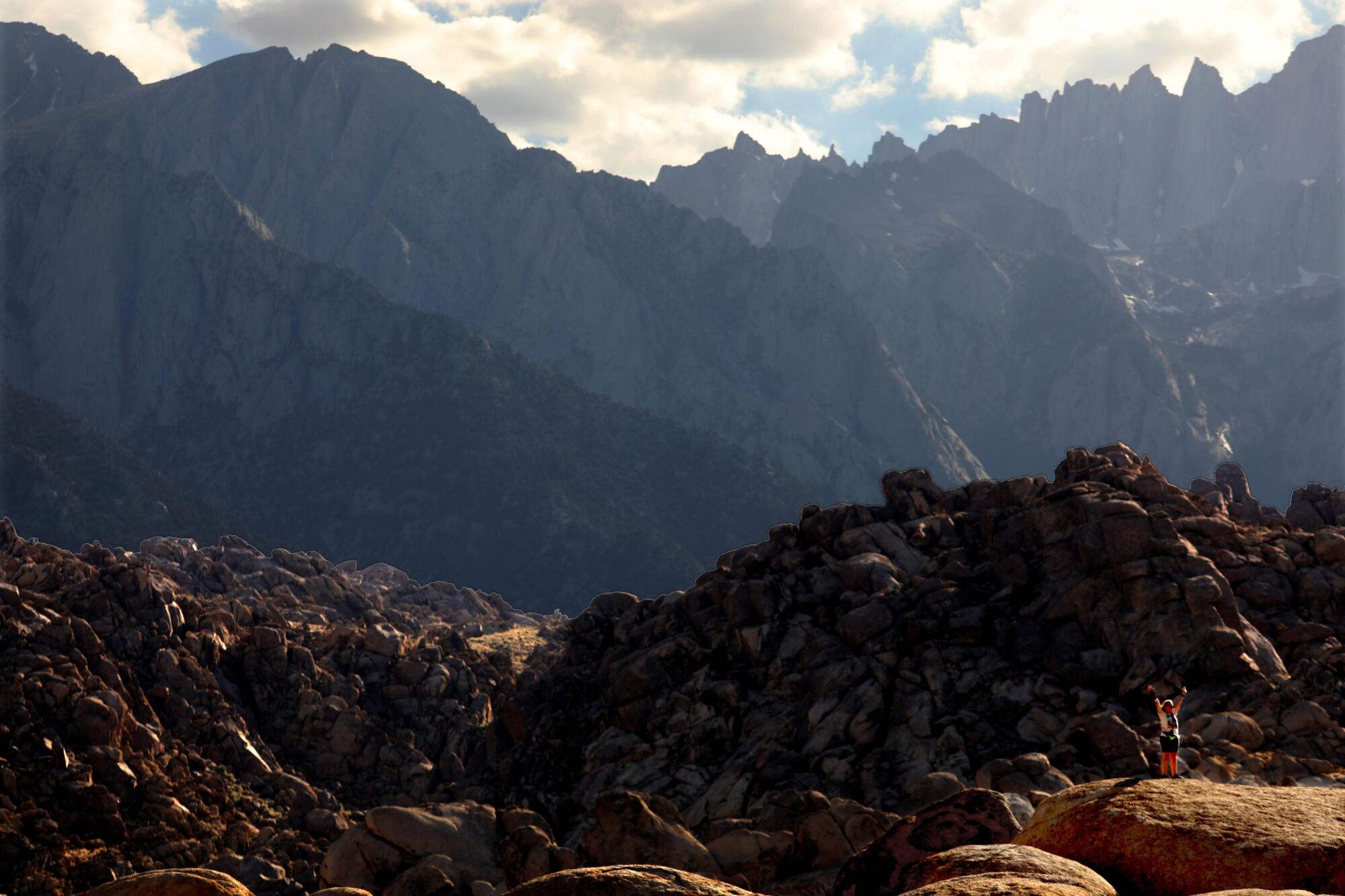
“Are we going to let people cut our nation’s history in half by getting rid of anything that was named because of the Confederacy? That would be ridiculous!” he said.
Inyo County Supervisor Matt Kingsley, whose district includes the Alabama Hills, was not sure what to think.
“This is a surprising issue in some ways,” he said. “But given the climate that has swept the country since what happened to George Floyd, this could end up being more of a federal issue than a local one.
“I look forward to seeing how this issue develops,” he said.
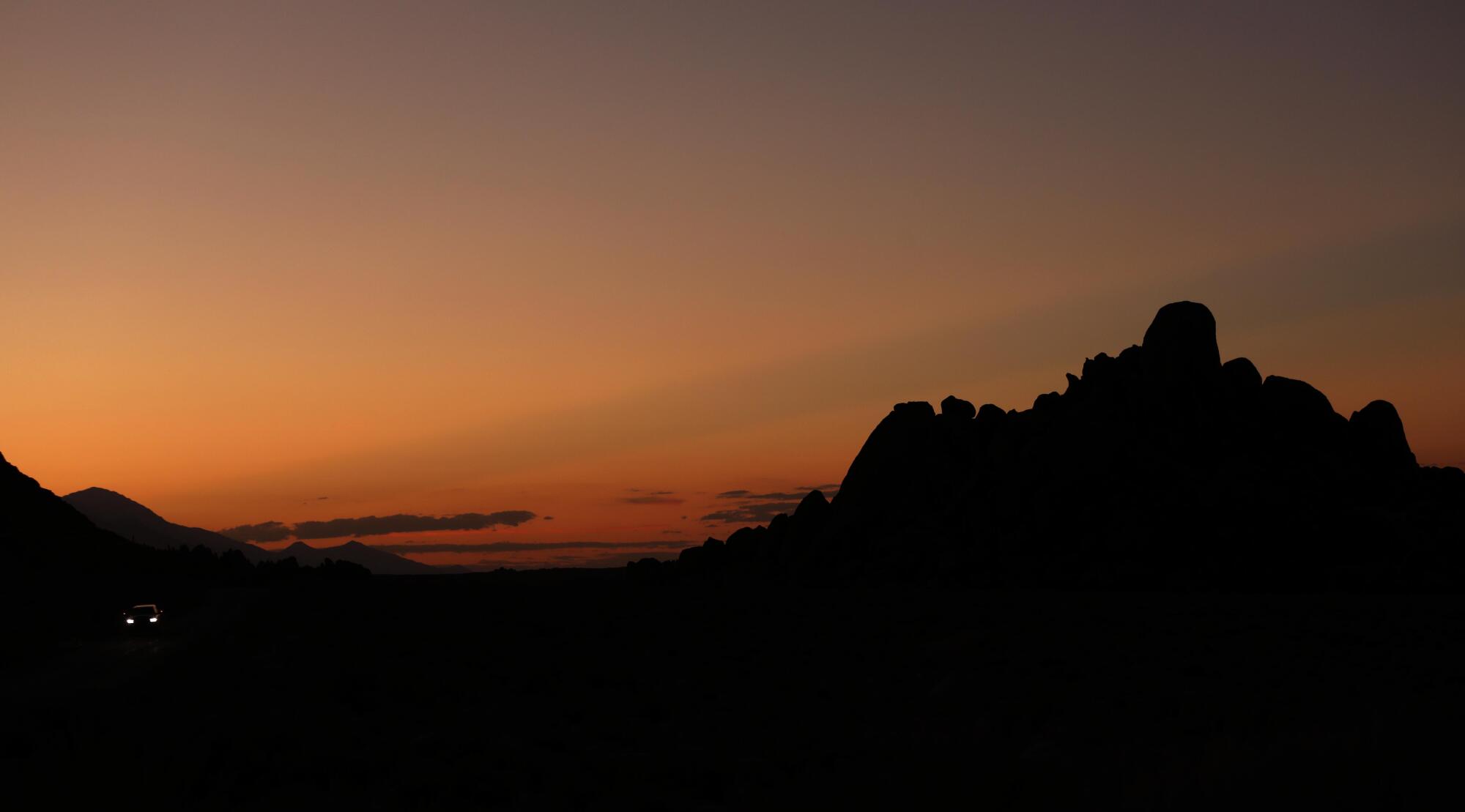
In the meantime, the full story behind the naming of the Alabama Hills is on display at the Museum of Western Film History in Lone Pine.
After sinking the Hatteras, the Confederate raider Alabama spent nearly two years destroying merchant vessels carrying American goods throughout the Atlantic, Indian and Pacific oceans.
In 1864, the Alabama was attempting to dock in Cherbourg, France, when the U.S. warship Kearsarge appeared outside the harbor. The Alabama sailed out to duel with the Union ship. An hour and a half later, the Alabama lay at the bottom of the English Channel.
After Union backers in California got word of the outcome of that battle, they named a Sierra peak about 16 miles north of the Alabama Hills to honor the Kearsarge.
